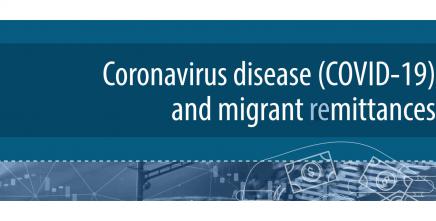The COVID-19 pandemic is wreaking economic havoc around the world. African governments, in particular, are faced with huge budgetary constraints due to the economic slowdown, a dramatic drop in commodity prices, the flight of foreign capital and the need to meet debt repayment. The UN Economic Commission for Africa estimates that economic growth in Africa will contract by at least 1.4 percentage points from the pre-COVID projected growth in 2020, pushing nearly 5 million people into extreme poverty.
Across the African continent, families and individuals bearing the brunt of the economic shock are squeezed on both sides of the coin. On the one hand, the lack of economic and social support from their government, and on the other, the sudden loss of additional income. Remittances inflow to the African continent could decline by 21% - or 18 billion dollars - in 2020 alone. While many African governments have rolled out support for people reliant on remittances - such as waiving international money transfer fees and facilitating mobile money transfer - much more needs to be done.
What can governments do to help keep remittances flowing during the COVID-19 pandemic? How can governments better support migrant workers, their families and communities?
Join the ONE Campaign and ECA as they share the latest findings of their report entitled ‘COVID-19 and remittances: protecting an economic lifeline”.
Follow the conversation by @ECA_Official and ONE #remittances #economiclifeline on twitter
Report: Coronavirus disease (COVID-19) and migrant remittances - Protecting an Economic Lifeline - [French]


